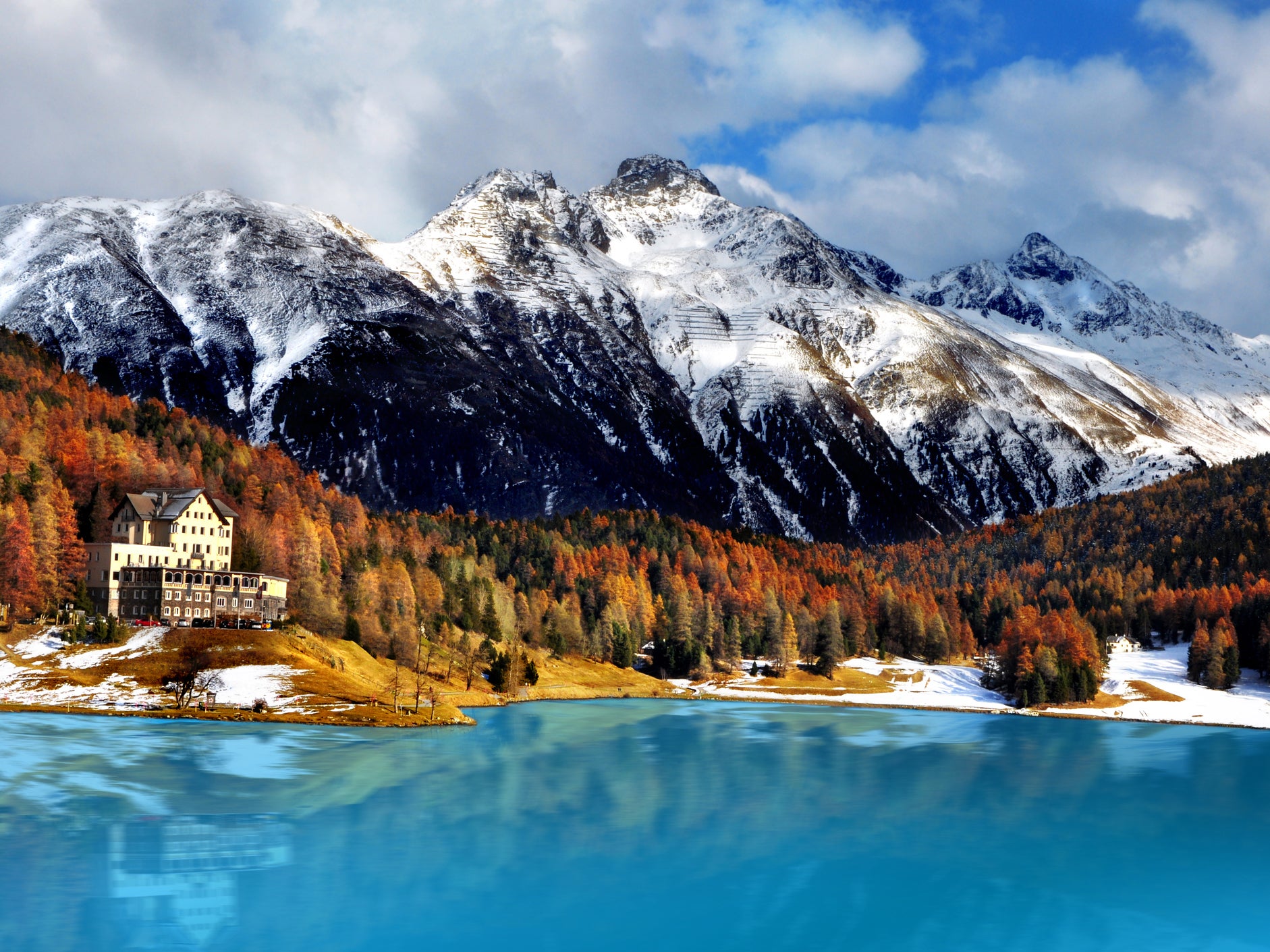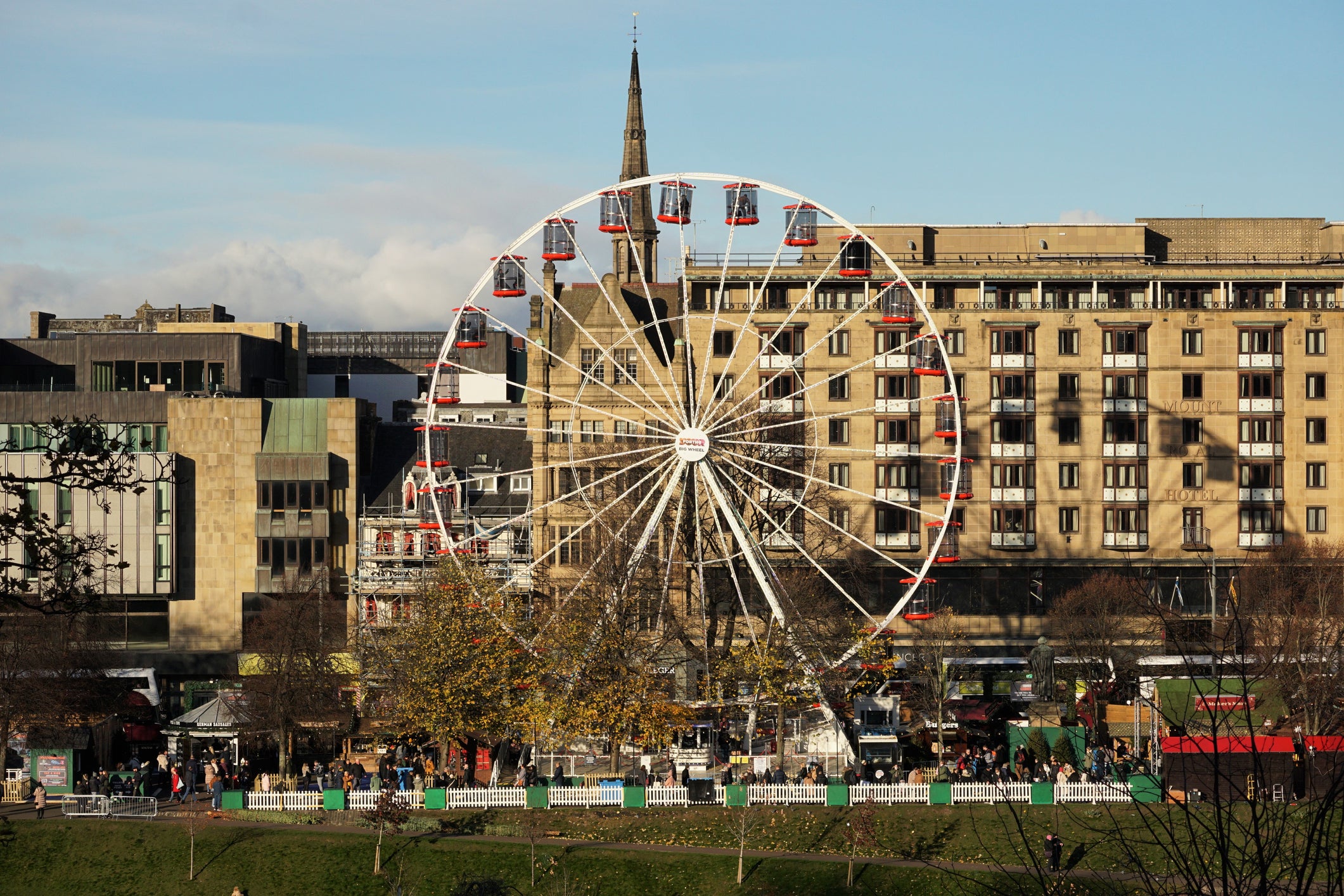When is the earliest I can take a pre-flight Covid test for my US trip?
Simon Calder answers your questions on virus tests, Swiss quarantine, Costa Rica and Edinburgh


Q I am due to fly next Saturday to the US. My flight is at 10am. I want to know if I get my test at 7am on the Friday morning is that acceptable or must it be within 24 hours?
Emma W
A You will be flying in to the US barely a month after the nation opened to fully vaccinated British visitors (and under-18s travelling with them) after a gap of more than 600 days. And already the rules have changed both for going west and returning home.
The US requires a negative test result or “documentation of having recovered from Covid-19 in the past 90 days” in order to enter. The test can be either rapid antigen (lateral flow) or PCR. The former is much cheaper and faster.
From 8 November to 5 December, the American testing rule was among the most relaxed of any country: for my trip, departing on the afternoon of Friday 26 November, I took a test early on the morning of Tuesday 23 November.
From Monday 6 December, though, the timing is getting tighter. The test must be taken on the day of the flight or the previous day. There is no “24-hour” stipulation. So you could take the test any time from one minute past midnight on Friday. Being tested at the airport on Saturday morning before departure is an option, but because your flight is relatively early I suggest you find a test location close to your home on Friday; 7am is just fine.
There’s a lot of speculation about whether a test-at-home service is legitimate. While anecdotally many people say they have successfully reached the US with a cheap self-test, I do not recommend it. The US health regulator, the CDC, stipulates: “The testing procedure must include a telehealth service affiliated with the manufacturer of the test that provides real-time supervision remotely through an audio and video connection.” So go with a professionally administered test.
Finally, before you return to the UK you will need to book a PCR test to be taken upon arrival or one of the two following days, to comply with the new British rules.

Q On 27 December our family (including four small kids) are booked to fly to Zurich for a holiday in Switzerland. Should we cancel now, or could the quarantine rules change before we’re due to depart? Or could we simply drive?
Martin S
A With only 24 days remaining before you are due to depart, last weekend’s decision by Switzerland to impose quarantine on arrivals from the UK must be causing you stress and uncertainty. At just the time you should be looking forward to the holiday, instead the spread of the omicron variant could potentially wreck your plans.
I am not sure what sort of holiday you have booked. If it is a proper package (with flights and accommodation bundled together), there are two possible outcomes: either the Swiss remove the quarantine requirement and the trip goes ahead as planned; or the isolation rule stays, rendering it impossible for you to enjoy the holiday you booked. In the latter case, the holiday is off and the travel company must give you a full refund within two weeks. Do not change anything at this stage: the travel firm will, understandably, want to hang on for another 10 days or so in the hope that Switzerland’s rule softens.
If you have booked flights and somewhere to stay separately, though, your position is trickier. Airlines have differing policies on your rights if you decide not to travel. Booking with British Airways puts you in a fairly strong position: you can cancel any time up to the close of check-in and obtain a voucher for future travel on any route.
Accommodation providers set their own cancellation rules, too. I suggest you calculate the last possible time at which you can cancel for minimum financial harm, and wait until just before that moment to commit.
I hope I can persuade you not to drive. Logistically, the fact that you would be transiting France (plus probably Germany and possibly Belgium) imposes a tangle of additional travel restrictions – you would need to meet the differing rules for each country you pass through.
More of concern is the danger. Driving many hundreds of miles across Europe in midwinter is far riskier than flying. One of the many regrettable travel consequences of the coronavirus pandemic is that people have driven rather than flown, hugely increasing the risk to themselves. If you are determined to go overland, please consider the rail option via Paris.

Q We are hoping to get to Costa Rica in February to complete a retirement trip that was originally planned for March 2020. What do you think the chances are that we will be able to make it? Will we still be able to have a good experience with Covid restrictions? And what are your Costa Rica highlights?
Roy C
A December has only just begun, and so there are nine weeks or more before your prospective trip starts. As you will have seen over the past couple of years, a week is a long time in the tricky world of travel restrictions – and nine weeks is an age.
Much will depend on the spread of the omicron variant and the assessment of the threat that it (and any subsequent variant of concern) poses. So I would be looking forward optimistically to the journey, but not necessarily committing financially – unless you can find a good, specialist travel company that is prepared to offer plenty of flexibility.
I certainly wouldn’t fret about excessively restrictive Covid rules. Costa Rica is all about the great outdoors, and in February – a perfect month to be there in terms of climate – you will probably be hard-pressed to see any obvious sign of the pandemic that the world is currently enduring.
In terms of what to see: I am not a huge fan of the capital, San Jose (being mugged there on my birthday did not endear me to the city), though the gold museum is certainly worth a visit. Some of the nation’s best restaurants are there, too. But you are probably not in Costa Rica for the food, so I urge you to head out to the area around the seething, spectacular Arenal volcano, where the power of the restless earth is on permanent display; to Manuel Antonio national park and the adjacent Pacific resort of Quepos; Dominical, a surfer’s paradise for Central America; and, south along the Pan-American Highway, to the Golfito area – and stay at the amazing Esquinas Rainforest Lodge, the original and greatest environmentally gentle place to stay.

Q I want to travel home to Scotland from the Netherlands for Christmas, arriving at the port of Newcastle by sea. Presuming I do a PCR test within two days of arriving, then I suppose I am required to do a day eight PCR test in Scotland. That makes it now impossible to go over for Christmas.
Alison S
A Happily, you will be able to go to Scotland as planned. But your question illustrates the confusion that prevails with every new twist and tangle in the coronavirus travel rules.
For fully vaccinated arrivals by sea, rail and air to anywhere in the four UK nations, the same rules now apply. You must book a single PCR test ahead of travel to the UK. You must take the test on the day of arrival or one of the two following days. Until you get a negative result you must self-isolate. If you take a test in Newcastle (for example at the testing centre at the city’s airport) and pay for a reasonably rapid analysis, you might find that the result is in by the time you reach home in Scotland. If it is negative, you are free to go out and about (following the nation’s Covid rules, of course).
There is no “day eight” test for vaccinated arrivals, but I don’t blame you for thinking otherwise: on Monday the first ministers of Scotland and Wales, Nicola Sturgeon and Mark Drakeford, asked the UK government for much tougher travel rules – with eight days of mandatory self-isolation for all arrivals to the UK and a PCR test required to leave quarantine at the end. Ms Sturgeon said: “We believe this would be more effective in detecting variants.”
Had the plan been adopted, it would have extended the minimum length of quarantine from a couple of hours to eight days. But it was flatly rejected by Downing Street. Because of the land borders their nations share with England (one of which you will be crossing), the first ministers acknowledged that they would not be able to impose different, more restrictive rules. The one distinction I can see is that children under 11 arriving in Scotland escape the testing requirement, while in the other UK nations PCRs are required from everyone aged five and above.
Email your questions to s@hols.tv or tweet @simoncalder
Join our commenting forum
Join thought-provoking conversations, follow other Independent readers and see their replies
Comments
Bookmark popover
Removed from bookmarks